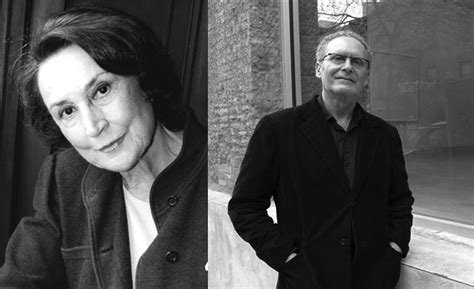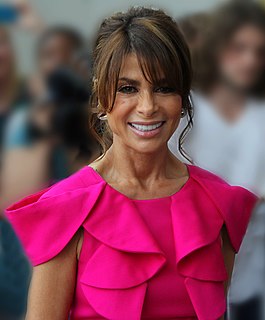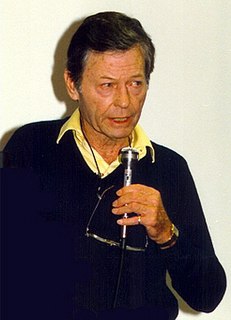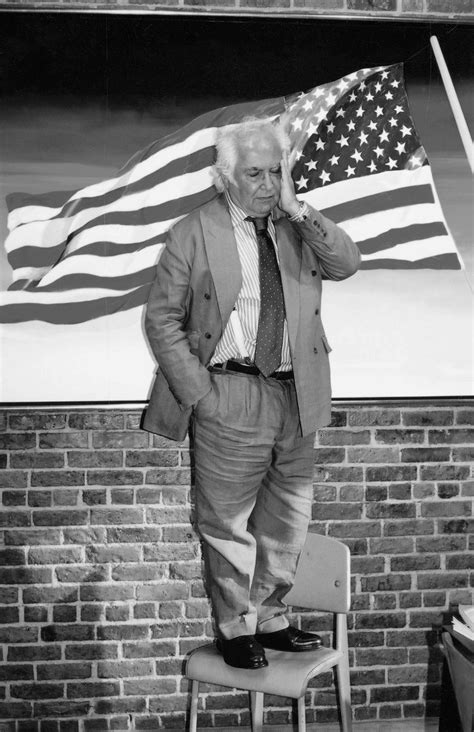A Quote by Jessye Norman
If I were not able to separate the art from the artists, I think I would limit myself a great deal, and life wouldn't be nearly as interesting.
Related Quotes
That experience of touching down in a totally foreign place is like having a blank canvas: You begin with nothing, but stroke by stroke you build a life. This process requires everything great art requires-risk-tasking, hope, a great deal of imagination, all the qualities that are the building blocks of art. You must be able to dream something nearly impossible and toil to bring it into existence.
The artist is the lowest form of life on the rung of the ladder. The publishers are usually businessmen who deal with businessmen. They deal with promotional people. They deal with financial people. They deal with accountants. They deal with people who work on higher levels. They deal with tax people, but have absolutely no interest in artists, in individual artists, especially very young artists.
It's always boiled down to the quality of your music and the quality of your deal with whoever's distributing your music: There are artists who sold a lot of records and didn't make money because of their deal, and artists who didn't sell nearly as much who made a great living because they own their masters.
I think the four land artists I showed all worked within a few years of each other. And they were standard bearers, I suppose, for land art. They each did very separate things. Apparently, later in California, a lot of artists started working in that medium and there was something of a rush of earthworks. But I wasn't involved with that.
What's happening in the larger world always influences art. When I first started the gallery in 1959, one of the first things I learned was that most people assume artists know one thing and one thing only - that they were idiot savants. I found very quickly that most artists were very informed and very aware of what was happening in the world around them. So all of those things go together, especially for earthworks. And at that time there was such an intense interest in American art. So there was a great deal of attention paid to where it was going.
The aim of the book is to set a limit to thought, or rather - not to thought, but to the expression of thoughts: for in order to be able to set a limit to thought, we should have to find both sides of the limit thinkable (i.e. we should have to be able to think what cannot be thought). It will therefore only be in language that the limit can be set, and what lies on the other side of the limit will simply be nonsense.
Suppose there were an experience machine that would give you any experience you desired. Superduper neuropsychologists could stimulate your brain so that you would think and feel you were writing a great novel, or making a friend, or reading an interesting book. All the time you would be floating in a tank, with electrodes attached to your brain. Should you plug into this machine for life, preprogramming your life experiences?...Of course, while in the tank you won't know that you're there; you'll think that it's all actually happening...Would you plug in?
So if the worth of the arts were measured by the matter with which they deal, this art-which some call astronomy, others astrology, and many of the ancients the consummation of mathematics-would be by far the most outstanding. This art which is as it were the head of all the liberal arts and the one most worthy of a free man leans upon nearly all the other branches of mathe matics. Arithmetic, geometry, optics, geodesy, mechanics, and whatever others, all offer themselves in its service.
Norman Rockwell spent his career painting pictures that helped people understand their own feelings...pictures that enriched their own experiences and celebrated their own lives. But the art establishment branded him an 'illustrator', a sentimental one at that. Real artists, they said were doing art for art's sake, not for the sake of the bourgeois public. Real artists were putting swiggles, smears or daubs of paint on the canvas. They were doing 'innovative' and 'creative' work. If they were hideous and grotesque; we know that's what life really is!
I think that the first responsibility of an artist is to follow truth, and the innate original forces and energies that are within them. At the same time, I also think, collectively, that there has to be a place for artists to reflect and deal with the society they're living in. I think that great art inevitably reflects some of the drama and trauma and conflicts that exist in the outer world.



































